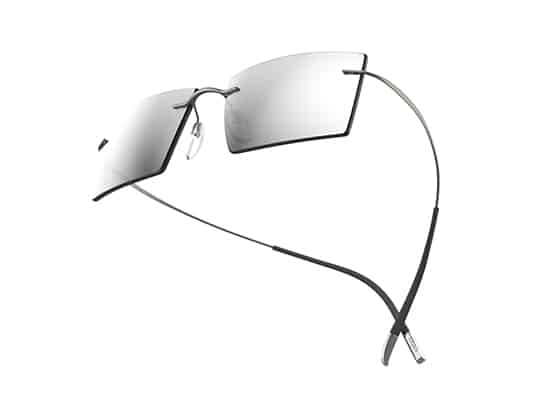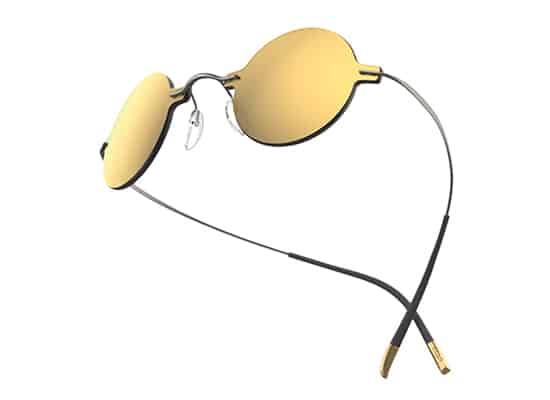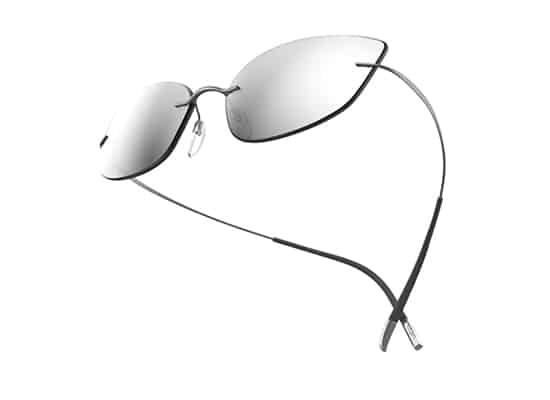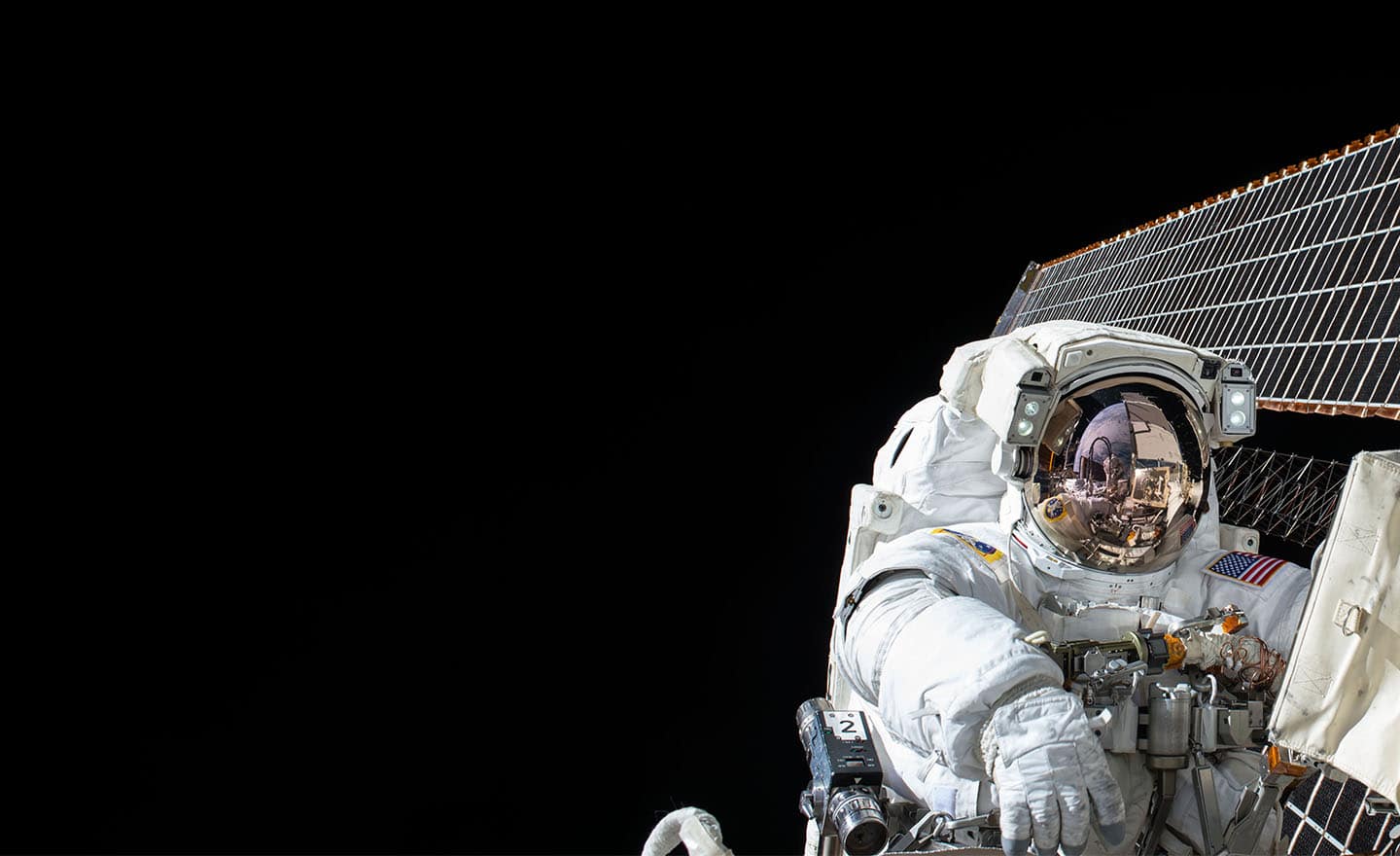
02:29 -
© Unsplash
Whether you’re an aspiring astronaut or just an aficionado of all things extra-terrestrial, have you ever considered what it takes for a pair of glasses to be work in space? And what effect might space travel have on your usual frames? Here’s our guide to glasses appropriate for a trip to infinity (and beyond).

© Silhouette
Imagine you are in a spaceship, ready to set off on your first adventure deep into the starry sky. Whilst you might immediately imagine yourself kitted out in a cutting edge space suit, did you stop to wonder what glasses you might be wearing? Did you ever think that your usual frames might actually put you in danger up in space? Generally, glasses are fitted with tiny screws which can easily come out mid-mission. You could run the risk of swallowing them, or even worse, they could cause your space suit to malfunction or tear. Houston, we have a problem (when it comes to eyewear), indeed.
Working conditions in space are extremely volatile and sensitive and you could be working outside of your ship, floating in your spacesuit and helmet for many hours without the opportunity to push your glasses back in place if they were to suddenly slip down your nose. However, frames which cling so tightly around your face are not the solution, as they might cause discomfort. This is why, in order to create a model of glasses that can be worn in space, an extremely light-weight frame created without frames and made from materials that do not provoke any kind of allergy are paramount.

© Silhouette

© Silhouette

© Silhouette
After a selection process and a series of tests run by scientists and researchers at NASA in the early 2000s, the model Titan Minimal Art designed by the Austrian eyewear brand Silhouette were deemed appropriate for trips to space. And not only do they walk the walk, they also look the part: ultra minimalist, made from titanium metal and without rims, screws or hinges. Weighing only 1.8 grams, they are also officially the lightest weight glasses in the world. Since they have been given this certification, the Titan Minimal Art frames have even been used by astronauts on several NASA missions into space.
Even if you have no plans to leave firm ground in the next few years, that shouldn’t prevent you from buying these Silhouette frames. Since they were created in 1999, the high-quality model has attracted over 10 million wearers from across the globe. There are even rumours that Elizabeth II has been wearing Silhouette-designed frames since the 1980s. And if they’re good enough for the Queen of the United Kingdom, then they are most certainly good enough for us.
Do you have 20/20 vision? Or have you had an eye-test recently and been told you don’t need glasses? Well, then you certainly tick a crucial box to be considered for the NASA training program. However, what you might not know is that spending a long period of time in space can severely damage your eyesight. In fact, medical examinations performed on astronauts after prolonged periods of time in space show a flattening of the eye balls and a drastic drop in their sharpness of vision after they return to earth. Why? Without gravity, the blood pressure around the eyes and brain increases. Known as ‘cerebro-spinal liquid pressurization’, this phenomenon is responsible for a worsening of eyesight.
But no need to panic if you areabout to set off on a long-distance voyage towards the stars, since NASA are on the cusp of resolving this problem. In a study carried out at the John Space Centre in Houston, Texas, 20 individuals were made to wear swimming goggles, which, by compressing against the skin around their eyes, reduced the pressure of anti-gravity on the eyes and brain and thus diminish the damage on vision caused by long periods of time in space. However, in order to confirm the results of the study, a complementary trial carried out in space will be necessary. So maybe hold off from going for a whizz around the atmosphere in your current glasses anytime too soon.

© Unsplash